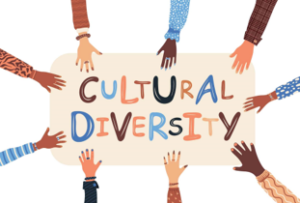By: Dzigbordi KWAKU-DOSOO
In today’s interconnected business landscape, particularly across Africa’s rapidly evolving economies, diverse teams have become the norm rather than the exception.
Research from the African Development Bank shows that 68% of growing enterprises across the continent report teams that include at least three generations working across multiple cultural backgrounds (AfDB, 2024).
These diverse teams hold tremendous potential—McKinsey’s Africa Business Insight study reveals that companies with both cultural and generational diversity are 37% more likely to outperform their industry medians on the continent (McKinsey Africa, 2024).
However, this potential remains largely untapped, with only 26% of African organizations reporting that they effectively manage cross-cultural, cross-generational teams (PwC Africa Workforce Study, 2024).
For new managers stepping into leadership roles across this complex human terrain, the first 30 days are critical. Research from the University of Cape Town’s Business School shows that leaders who establish effective diverse team dynamics within their first month achieve 43% higher team engagement scores and 31% lower turnover rates over the subsequent year (UCT, 2023).
This article explores the essential first steps for new managers tasked with leading teams that span both cultural differences and generational divides, with specific application to African business contexts.
Today’s Diverse African Workplace: Understanding the Landscape
The modern African workplace presents unique diversity challenges. Currently, it commonly houses five generations simultaneously: Traditionalists (born before 1946, still making up 3% of the formal workforce, particularly in advisory roles), Baby Boomers (1946-1964, 22%), Generation X (1965-1980, 30%), Millennials (1981-1996, 38%), and Generation Z (1997-2012, 7% and growing rapidly) (African Labour Statistics, 2024).
These generations developed their work identities in vastly different contexts—from colonial and immediate post-independence eras to today’s digital transformation.
Layered atop this generational diversity, Africa’s rich cultural dimension adds further complexity. According to the Pan-African Leadership Survey (2024), 72% of teams in Africa’s fastest-growing companies now include members from at least three different ethnolinguistic backgrounds, with varying attitudes toward hierarchy, communal decision-making, communication styles, and time orientation.
“The intersection of cultural and generational diversity creates both unique challenges and unparalleled opportunities in African business contexts,” explains Dr. Nana Osei, professor of organizational behavior at the University of Ghana Business School.
“When managed effectively, these teams demonstrate superior problem-solving capabilities and innovation metrics that are uniquely suited to African market challenges. When managed poorly, they experience higher conflict rates and communication breakdowns” (Osei, 2024).
The economic stakes are significant. A Lagos Business School study of 1,200 companies across 12 African countries found that organizations with above-average diversity on both cultural and generational dimensions reported innovation revenue 23% higher than companies with below-average diversity, and were significantly more successful in developing solutions tailored to local market needs (LBS, 2023).
The most effective approaches to managing diverse teams in Africa draw from both global and Africa-specific research frameworks. Cultural intelligence (CQ) remains important, but research from the University of Pretoria shows that managers in African contexts must develop additional competencies around navigating ethno-linguistic diversity and understanding the impact of colonial histories on present-day workplace dynamics (University of Pretoria, 2023).

For generational dynamics, research from the African Leadership Institute shows that while generational differences in African workplaces share some similarities with global patterns, there are important distinctions.
Their pan-African studies reveal that all generations share core values around community, respect for elders, and collective achievement, but differ significantly in their approaches to hierarchy, technology adoption, and work-life integration (ALI, 2023).
The LEAD (Leadership Effectiveness Across Diversity) research program, spanning 28 African countries, provides critical insights into how leadership effectiveness varies across African cultures.
Their most recent findings indicate that while participative leadership styles work well in more egalitarian cultures like those found in parts of Southern Africa, more consensual community-based approaches may be preferred in West African contexts (LEAD Africa, 2024).
Where these frameworks intersect is particularly valuable for new managers. Research from Gallup’s African workplace studies reveals that regardless of culture or generation, team members across Africa universally need clarity, purpose, recognition, and development—but how these needs manifest varies significantly across different groups and regions (Gallup Africa, 2024).
Next, I discuss 4 actionable steps that you can adopt as a new manager or as an existing manager looking to level up their management style in a highly diverse workplace.
- Cultural and Generational Mapping with African Contexts in Mind
Your first week as a new manager is crucial for understanding your team’s diverse makeup. Rather than relying solely on demographic data or theoretical frameworks, take practical steps to map your team’s cultural and generational landscape. Here are two actionable approaches that work well in African business contexts:
First, create a practical “cultural signpost” document with your team. Instead of complex assessments, use a collaborative worksheet that maps out each team member’s preferences on everyday work matters: How do they prefer to receive feedback?
Do they value quick decisions or thorough consultation? Would they rather resolve conflicts directly or through a mediator? This becomes your navigation guide for daily interactions.
Second, hold one-on-one “listening tours” with three simple questions: “What motivates you at work?”, “How do you define respect in the workplace?”, and “What communication style brings out your best work?” I’ve found these conversations reveal critical insights about whether someone’s preferences stem from their generation, cultural background, or individual personality.
Remember, in our African context, theoretical cultural models can miss the nuances of our rich diversity. A young professional from urban Nairobi will navigate workplace dynamics very differently than a peer from rural Ghana, regardless of both being “Gen Z.” Your personal observation and direct conversation will yield more practical insights than any standardized assessment.
What makes this approach uniquely effective in African contexts is that it honors our traditional values of personal connection while gathering the practical information you need as a manager. As we say in Ghana, “If you want to know the road ahead, ask those coming back.” Your team already holds the cultural map you need—your job is simply to bring it to light.
- Effective communication within diverse teams across Africa requires thoughtful planning, especially considering the many languages and cultural practices present. Clear, inclusive communication isn’t just nice-to-have—it’s critical. According to recent insights from MTN Workplace Analytics (2024), teams in Africa that intentionally set communication guidelines experience 33% fewer misunderstandings and complete their projects 18% faster.
Key strategies for enhancing multicultural team communication include:
- Cultural Awareness Training: Regular sessions to build understanding of various cultural backgrounds, promoting empathy and respect among team members.
- Multilingual Resources: Providing translations and ensuring key materials are accessible in multiple languages to accommodate linguistic diversity.
- Adaptive Communication Channels: Utilizing communication platforms that are effective across varied technological infrastructures and generational preferences.
- Clear Norms and Guidelines: Explicitly defining expectations around communication styles, meeting practices, and information-sharing protocols that respect both traditional and contemporary perspectives.
- Feedback Mechanisms: Creating structured channels for feedback that acknowledge cultural differences in communication and hierarchy.
- These practices should be documented, regularly discussed, and updated as needed to ensure ongoing inclusivity and effectiveness.

- Research from the African Management Institute identified relationship-building as
particularly critical in African business contexts, where trust often precedes transaction
across most cultures on the continent (AMI, 2023).
A pan-African study by the Trust Barometer found that younger generations (Millennials and Gen Z) develop trust primarily through transparency and values alignment, while older generations prioritize respect for traditional values and demonstrated expertise (Edelman Africa, 2024). Across African cultures, trust-building mechanisms show important patterns.
According to Ngomeli’s research, relationship-based trust predominates across most of the continent, with significant emphasis on communal connection, respect for community elders, and demonstrated commitment to collective well-being, though these patterns are evolving with younger generations (Ngomeli, 2023).
Successful managers in African contexts create structured opportunities for both relationship-building and demonstration of competence in the first month, with particular attention to respecting cultural protocols around relationship formation.
- According to research from Strathmore Business School, teams that actively leverage
their diversity generate 45% more locally-relevant innovations than homogeneous teams, but only when specific protocols are in place to ensure all voices are heard (Strathmore, 2024).
Dr. Wanjiru Kamau-Rutenberg’s research identifies “perspective rotation with cultural context” as particularly effective in African teams: systematically having team members from different cultural and generational backgrounds lead discussions on specific topics, ensuring diverse viewpoints are centered rather than marginalized, while maintaining awareness of cultural dynamics around seniority and authority (Kamau-Rutenberg, 2023).
The most successful diverse teams in African contexts, according to research from the African Innovation Foundation, create explicit systems for:
- Surfacing assumptions based on cultural or generational differences
- Challenging the status quo from multiple perspectives while respecting tradition
- Documenting and testing diverse approaches
- Incorporating indigenous knowledge alongside global and multigenerational insights
As African workplaces continue to diversify across both cultural and generational dimensions, the ability to navigate this complexity becomes not just a leadership skill but a critical business imperative for the continent’s economic future. Those who master set themselves—and their organizations—up for sustainable success in Africa’s dynamic business landscape.
Are you ready for TRANSFORMATION?
Dzigbordi Kwaku-Dosoo is a Ghanaian multi-disciplinary Business Leader,
Entrepreneur, Consultant, Certified High-Performance Coach (CHPCTM)
and global Speaker. She is the Founder and CEO of The DCG Consulting
Group.
She is the trusted coach to top executives, managers, teams, and
entrepreneurs helping them reach their highest level of performance through the integration of technical skills
with human (soft)skills for personal development and professional growth, a recipe for
success she has perfected over the years.
Her coaching, seminars and training has helped many organizations and individuals to
transform their image and impact, elevate their engagement and establish networks
leading to improved and inspired teams, growth and productivity.










